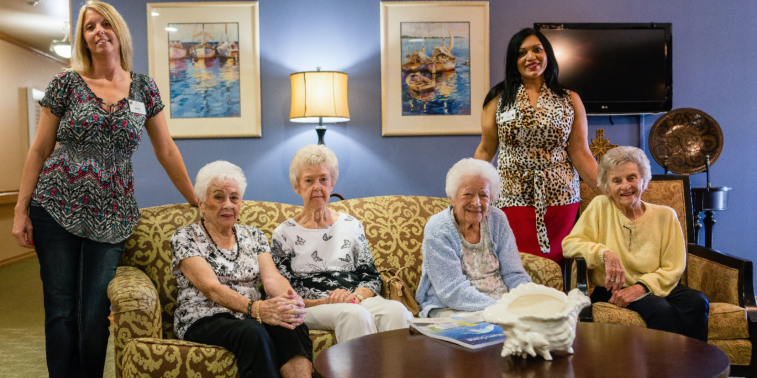Comprehensive Dementia Care Charlotte: Supporting Families with Thoughtful Solutions
Comprehensive Dementia Care Charlotte: Supporting Families with Thoughtful Solutions
Blog Article
Just How to Offer Individualized and purposeful Mental deterioration Treatment
The stipulation of customized and purposeful mental deterioration treatment requires a nuanced understanding of each person's one-of-a-kind background and choices. Care strategies have to be customized to involve the individual in methods that reverberate with their past experiences, thus promoting emotional links and improving general well-being. Furthermore, developing trust fund via regular and caring communications is crucial for producing a risk-free and helpful setting. As we discover the complexities of efficient interaction and the vital function of family participation, it becomes clear that the journey toward personalized care holds both challenges and extensive rewards.
Understanding Dementia Individuality

Treatment carriers must analyze cognitive capacities, emotions, and behavioral patterns to develop personalized treatment strategies. This may include adapting communication designs, employing familiar regimens, and using purposeful activities that reverberate with the individual's previous experiences. Engaging an individual with an enthusiasm for music via music tasks may stimulate positive memories and improve emotional health.
Moreover, understanding individuality promotes a compassionate approach that values the dignity and freedom of those dealing with mental deterioration. It encourages caretakers to pay attention actively, observe behavioral signs, and continue to be adaptable in their caregiving methods (charlotte care home). By prioritizing originality, caregivers can not only improve the top quality of life for those with dementia however additionally construct a much more profound understanding of their special viewpoints, ultimately resulting in much more compassionate and effective care
Structure Trust and Rapport
Establishing count on and connection is essential in mental deterioration treatment, as it produces a encouraging and risk-free atmosphere for individuals affected by the problem. Building these links needs consistent, compassionate communications that prioritize the requirements and sensations of the person. Caretakers have to come close to interactions with compassion, identifying the one-of-a-kind obstacles encountered by those with mental deterioration, including memory loss, complication, and emotional distress.
Efficient interaction is crucial in this process. Caregivers need to make use of clear, simple language and non-verbal signs to share understanding and assistance. Active paying attention demonstrates regard and validation, permitting individuals to express themselves without anxiety of judgment. Furthermore, keeping a tranquil temperament can assist minimize stress and anxiety, fostering a sense of protection.
Knowledge with day-to-day tasks and caretakers advertises a feeling of stability, enabling individuals to feel even more at ease. By doing so, caretakers enhance the individual's identity, advertising dignity and regard, eventually leading to stronger, a lot more meaningful connections in the context of dementia treatment.
Tailoring Activities and Interaction
Involving people with mental deterioration through tailored tasks can dramatically improve their lifestyle and foster a deeper link between caretakers and those in their treatment. Customization is essential, as it recognizes the distinct histories, rate of interests, and abilities of each person. Activities should be made to promote cognitive features, advertise physical activity, and motivate social interaction, all while continuing to be satisfying and satisfying.
To tailor activities effectively, it is essential to evaluate the person's preferences and cognitive capacities. For example, some might discover joy in gardening, while others may value music or art. Straightforward, acquainted tasks can evoke favorable memories and give a feeling of accomplishment. Furthermore, incorporating aspects of routine can use comfort and stability, allowing individuals to engage with tasks much more confidently.
Caretakers can improve involvement by getting involved along with investigate this site the people, fostering a supportive and interactive setting. It is likewise essential to remain adaptable and flexible, readjusting activities as required based on the person's energy degrees and state of mind. Ultimately, purposeful engagement with customized activities not only uplifts individuals with mental deterioration but also enhances the caretaker partnership, promoting shared enjoyment and understanding.
Efficient Interaction Methods
Reliable communication is important in dementia treatment, as it fosters a sense of link and understanding between caretakers and individuals experiencing cognitive decline. Utilizing efficient interaction techniques can significantly enhance the quality of communications and reduce frustration for both events.
First of all, making use of easy, clear language is vital. Brief sentences and acquainted words help individuals understand and react better. Furthermore, preserving a calm and positive tone can produce go to this site an encouraging environment, which is critical for people that might really feel baffled or distressed.
Non-verbal interaction plays a substantial function. Caretakers must take note of body language, facial expressions, and motions, as these signs can often convey greater than words - dementia care charlotte. Establishing eye call and making use of gentle touch can likewise reinforce connections and share compassion
Active listening is one more crucial part. Caretakers must listen, enabling individuals to share themselves totally, even if their speech is fragmented or vague. This lionizes and motivates a lot more open interaction.
Lastly, validating experiences and feelings is essential. Acknowledging feelings, no matter their basis in reality, can offer comfort and strengthen the caregiver-individual relationship, promoting a more supportive ambience.
Sustaining Family Members Participation
Family members participation plays a significant role in the total treatment and support of individuals with mental deterioration. Involving member of the family creates a collaborative environment that improves the high quality of care, cultivates psychological links, and guarantees that the unique needs of the person are met. Household members frequently have very useful understandings into the individual's background, preferences, and actions, which can be vital in developing individualized treatment approaches.

Furthermore, member of the family can be encouraged to join day-to-day care activities, such as taking part in significant discussions or aiding with acquainted routines. This not only assists receive the individual's sense of identity however additionally reinforces familial bonds. Ultimately, by promoting a comprehensive approach that values household contributions, care suppliers can boost the overall experience for both individuals with dementia and their enjoyed ones.
Conclusion
In final thought, supplying purposeful and individualized mental deterioration treatment demands an extensive understanding of each individual's one-of-a-kind background and preferences. Collectively, these methods add to improved quality of life for individuals with dementia.
The arrangement of significant and individualized dementia care calls for a nuanced understanding of each person's special background and preferences. By doing so, caregivers strengthen the individual's identity, promoting dignity and respect, ultimately leading to more powerful, more significant connections in the context of dementia treatment.
Engaging people with dementia through tailored activities can substantially improve their high quality of life and promote a deeper link between caregivers and those in their care.Family members participation plays a substantial function in the total care and assistance of individuals with dementia. Ultimately, by cultivating an inclusive method that values family payments, care carriers can boost the overall experience for both people with dementia and their enjoyed ones.
Report this page